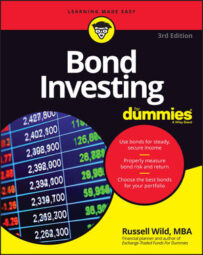Peer-to-peer lending is the new kid on the fixed-income block. If you haven’t checked out Prosper.com or LendingClub, you may want to do so. Even if you decide not to invest, you’ll likely find the cybertrip fascinating. These sites are something like eBay for cash. (They have some similarities to Match.com, too.)
People go onto the websites in search of loans (trying to look as respectable as possible), and other people choose whether or not to lend them money. The process is called peer-to-peer lending. Instead of turning to a credit card company, would-be borrowers go public with their money needs and try to get a better deal.
In fact, they often do. And lenders, although charging less interest than Visa and MasterCard (not hard to do), may get a higher return than they would in another fixed-income investment, like bonds.
Both sites say they do credit checks on all borrowers, but credit checks aren’t perfect. And some of the borrowers are listed as known bad credit risks. You can choose them or avoid them.
All in all, these are promising ventures, although certainly not something to bank on heavily quite yet. Investment-wise these are the equivalent to corporate junk bonds, but the return may be higher than you can get by lending to corporations. Only time will tell.
A few caveats if you want to give peer-to-peer lending a whirl:
Spread your loans out. Don’t lend too much to any one person, regardless of how good his story or credit rating seems.
Take the aggregate return figures posted by these sites with a big, fat grain of salt. A lot of wrinkles still need ironing out when it comes to how returns should be calculated on peer-to-peer sites.
Know that you are taking substantial risk with your money. One of Prosper.com’s web advertisements, aimed at potential lenders, claims: “It’s Simple, Safe & Secure.” BS! It isn’t all that simple — it takes some time to get up to speed — and it isn’t at all safe and secure. If you want safe and secure, put your money in an FDIC-insured savings account!
Compared to bonds: Expect peer-to-peer lending to generate a yield comparable to high-yield corporate bonds, and perhaps higher. The risk also may be comparable (which is to say considerable) and perhaps significantly higher — especially if you choose to lend to high-risk borrowers in search of higher returns. Interest earned is generally taxed as normal income.

